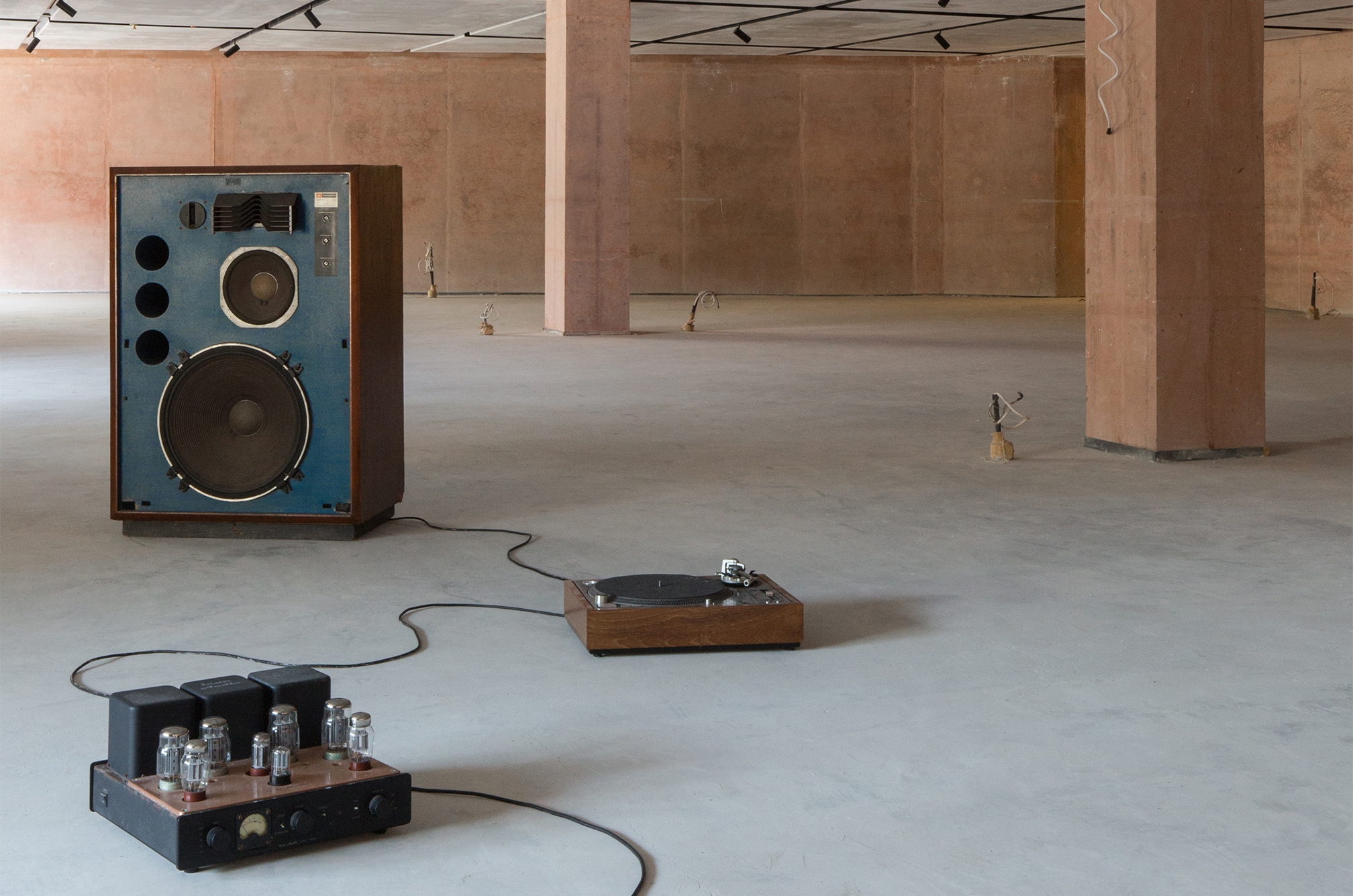 Features
Features
Desa Potato Head: Everything we know about Bali's audiophile indulgence opening in December
A subterranean nightclub helmed by DJ Harvey is just the beginning
Introducing Desa Potato Head. Well, they call it a Desa, but we are inclined to call it a sustainable kingdom that clashes music with art and design. Opening in December, Desa Potato Head is in part an extension of Potato Head Beach Club, expanding the beachfront property times three. But actually, the dichotomy is quite different. While the ideology dovetails with the Potato Head that we know (and love), Desa Potato Head is instead a creative village that is designed to evoke creativity amongst artists from different mediums and disciplines.
“At Potato Head, we’re evolving quite significantly from a beach club and hotel into a creative village by creating an environment that stimulates creativity through music, design and art and clashing all these different experiences together to create something, which will feel quite new,” Creative Director Dan Mitchell said in conversation with Mixmag Asia.
Music has always been at the forefront of what the brand does, aligning themselves with artists like Grace Jones to DJ Harvey all the way through to local Indonesian bands. With Desa Potato Head, this will evolve into a 360-degree experience not just for artists but for the wider population of Bali too—and that includes locals. No one will be forced to buy a drink or even a ticket to enjoy Desa Potato Head; the community atmosphere welcomes all, especially emerging artists.
Designed by Managing Partner — Architect David Gianotten at OMA, the Dutch practice founded by Rem Koolhaas, Desa Potato Head is a sprawling seven-acre open development that weaves sustainability through every touchpoint of every experience, from artist to architect and DJ — that’s the 360° story. Like when Virgil Abloh played, designers built the stage from recycled plastic that was handwoven by local artisans and then they threw a conscious rave with it all (even the drinks were conscious). Now, this concept will become permanent.
In the last few weeks, Potato Head has slowly been shifting focus on its social media accounts to tease its opening, drip-feeding small bits of content coupled with facts to its global audience. Amongst them was Mixmag Asia, but we couldn’t wait so we hunted down Dan and his audiophile director Dea Barandana, and begged them for another fix. They delivered. From a musical POV, here is everything about Desa Potato Head that we could extract from the pair, or at least what they’re allowed to announce, for now.
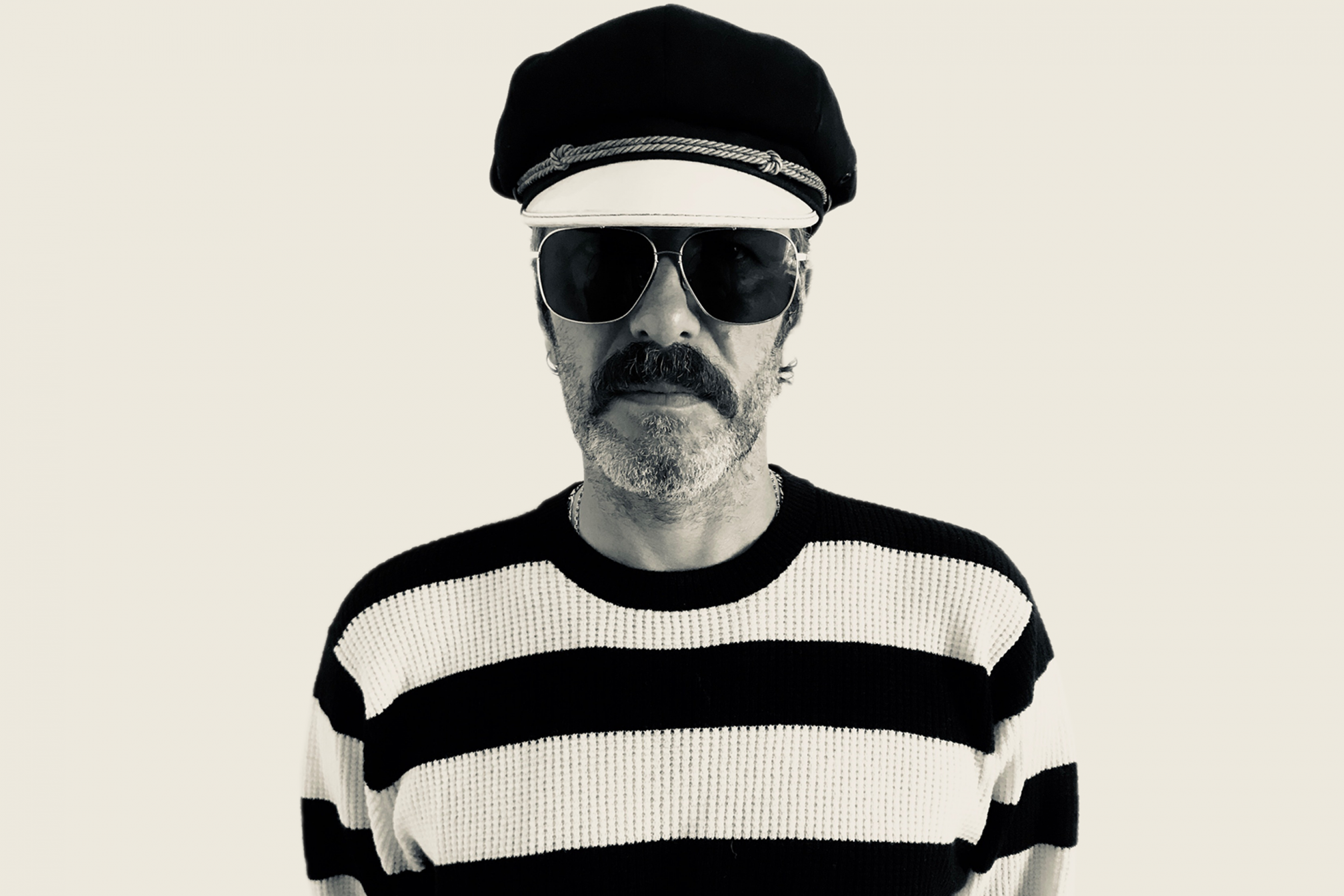
A nightclub and sound system designed by DJ Harvey
The rumours are true, DJ Harvey is helming a subterranean nightclub inside of Desa Potato Head called Klymax where he’s essentially put his 40 years of DJ experience into. He was recruited to build the best sounding nightclub in Asia and instead of going big, he went intimate and capacity is limited to around 400 people. Some of the standout features that bear his personal touch are a sprung dance floor and floor-to-ceiling wood panelling that is perforated. The punctures get larger as the ceiling gets higher to enhance the acoustic experience. But the flashiest of all is the sound system, which goes above and beyond the kind of customised sound system that every club in the world brags about.
The sound system was designed by DJ Harvey together with a guy called George Stavro from LA and is a blend of Larry Levan (we’re talkin’ 12-foot-wide Bertha subs) and JBL that come together in perfect syncopated harmony. Everything from the measurement, the acoustics, the system itself to the way the DJ booth is configured was all designed as one. “Usually you have a space and put a sound system in it,” Dan explained. “But we had the luxury of being able to design the sound with the space holistically. And Harvey literally did the process by hand alongside myself and the team.”
Dan's decision to work with Harvey on the club stems from a long-time friendship but also his significance in the world of music that dates back to the early 80s when he was a Ministry of Sound resident. "Harvey very much embodies the spirit of David Mancuso, Larry Levan, and Ron Hardy—and he's still living that today," Dan said. "But he's not a heritage act; he's still very relevant. You go to his shows and it's full of 21-year-olds, but he's also a hero for a lot of people in the music industry, especially the ones I grew up with.”
Dan adds that what he loves most about Harvey was the level of detail that comes with him: “Things like, if you want to put a disco ball up, he'll tell you that you can't have a disco ball up unless there is a certain amount of dust on it because apparently, when you have dust on a disco ball, it gives off a softer light than if it were freshly polished."
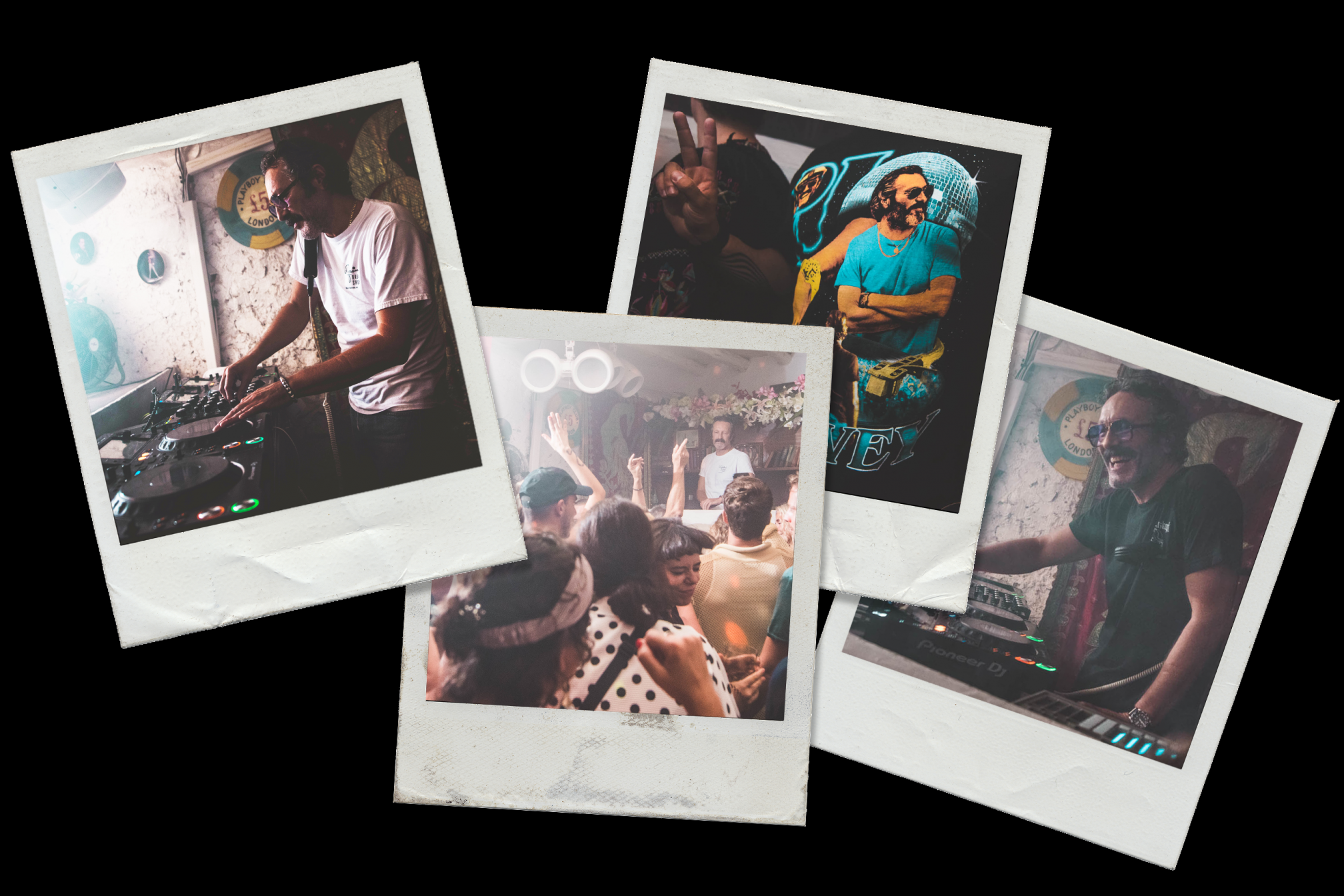
The club hasn’t even finished construction yet but the music programme is done. Together with Harvey, they came up with a predetermined list of about 60 artists from around the world that they feel embody the sound experience that they are curating. "It's not that we don't anyone else playing there, we don't want to be exclusive like that. It's just that we want to create a place that is quite puristic in the sound experience that we want to achieve."
Kylmax isn’t meant to be about the DJ anyway, it favours a kind of music and programming that delivers consistency regardless of who’s playing. In a perfect world, they want club goers to forego lineups and feel comfortable just turning up at Klymax knowing that the music they will be fed will be consistently excellent.
The club will open as discotheque only on Saturday nights, and because the acoustics are so good, during the week there might be sound healing experiences, gong baths, or even audiophile sessions.
A rooftop recording studio open to all
After neighbouring Katamama opened, the artisan hotel within Desa Potato Head, artists who played at Potato Head would be invited to stay there and, if inspired (which they usually were), create something. Potato Head would set up a makeshift studio inside the room with whatever the artist desired. "When people like Peggy Gou come here, we set up turntables for her in the room," Dan explains. “We did this for other artists too, like Disclosure who helped us launch our Creator Series. We wanted to keep doing this so we decided to make it official and created a dedicated space for artists. But not just the bigger names, we'll also be bringing in more local and emerging artists too.”
The studio, which you can expect to be called Studio Eksotika though it's not confirmed, will be managed by Dea, who added that it would also serve as home base for the brand's record label that it plans to launch next year.
A gallery of euphonious discography (and discovery)
The gallery inside Desa Potato Head will house a record library consisting of several thousand rare Indonesian records collected by Dea himself and is a tribute to eras gone by, featuring obscure gems from the 60s through to the 90s and running the gamut between genres like folk, disco and pop. Having spent decades scavenging for records in places like flea markets, antique shows, and even from radio stations that had gone bankrupt over the years, Dea’s dream of having people finally discover Indonesia’s hugely undervalued music history is coming to fruition—visitors to the gallery will be able to listen to the entire collection in a dedicated listening space.
The audiophile indulgence will continue to deliver upon dreams through an extensive collection of music and design books being available to the public. Listening sessions, talks and workshops will also unfold. In the back of the house, there will be a lab for the exploration of sustainable design. And in the front of the house will sit the gallery’s inaugural collaboration: Japanese audio specialist Audio Technica will install an analogue-inspired GlobeTrotter suitcase that holds some very, very expensive audiophile equipment.
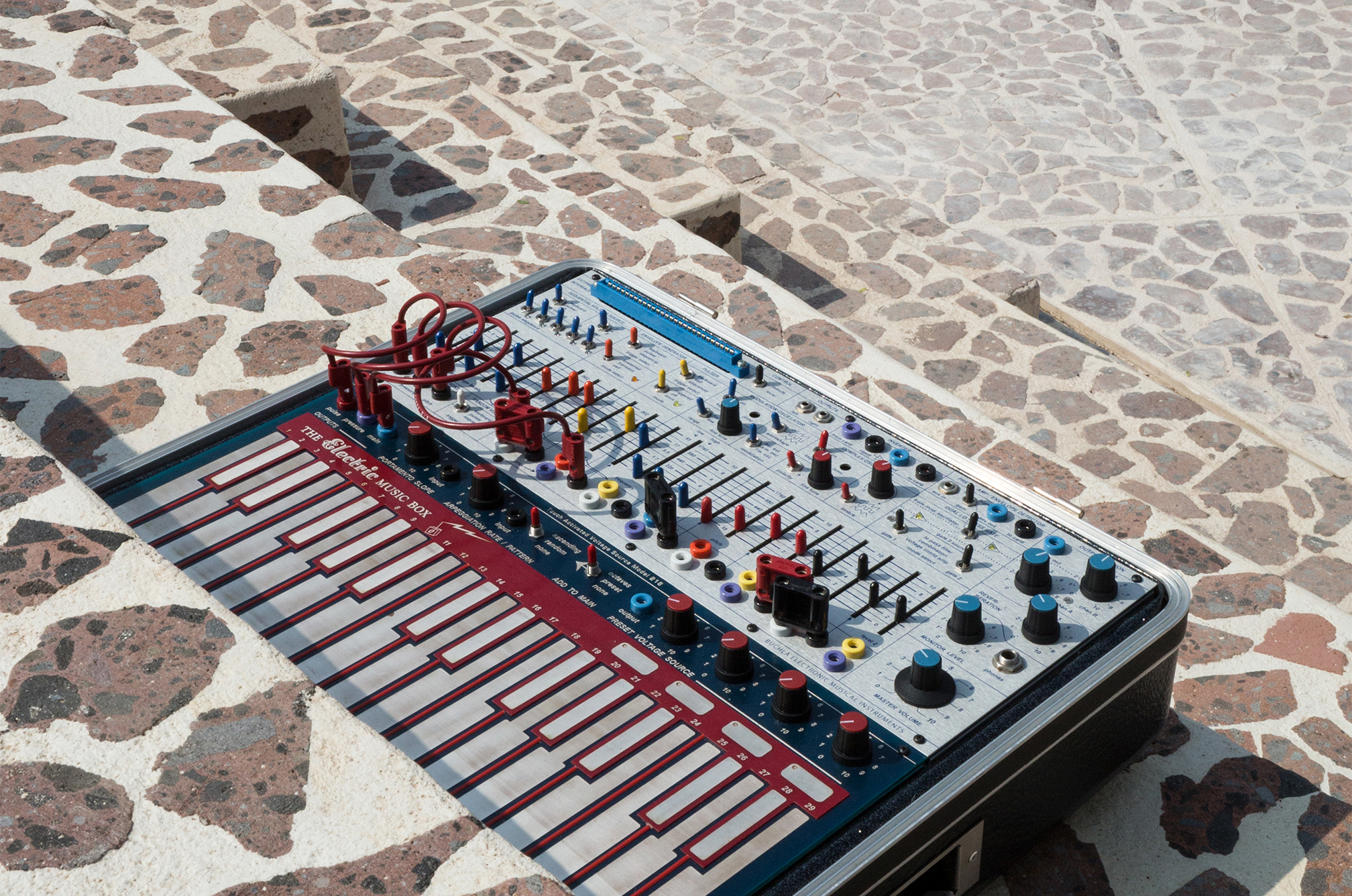
Bali’s first (proper) record store
It may not be the first by definition, but Desa Potato Head will debut Bali’s first record store that will make the island not just a worthy but a desired destination for crate diggers. Through partnerships with record dealers from all around the world, Circle Space will hold 12 different record boxes with built-in listening stations, each curated by a different record dealer. “One box one might be by Red Light Records from Amsterdam, and another by Gerry Rooney from London,” Dan told us. “Essentially we have this really cool global family of record dealers that are bringing their collections to Bali for the first time.”
Here you’ll also be able to buy records from every continent, with a focus on African, Korean, Japanese and American records that have been carefully selected by Dea and his friends from around the world. Circle Space will also be home to an official headphone bar so you can listen before you buy, with headphones especially designed by Potato Head and Audio Technica together.
A blissed-out Balearic-inspired amphitheatre
Springing to life around the same time as the sun and the moon, an amphitheatre overlooking the sea will be the focal point of sunrise and sunset programming at Desa Potato Head. Culture will take centre stage here in the form of anything from contemporary Balinese performances to experimental blissed-out electronic sets that will elevate the island’s idyllic sunsets. “But there will be a lot of sunrise sessions too,” Dan confirms. “We want to create a euphoric way of waking up.”
Naturally, sunset sessions will be on regular play as well and will eventually transcend into hypnotic and emotive evenings. “This is how we’ll break up the amphitheatre area, around the sun and the moon,” he added.
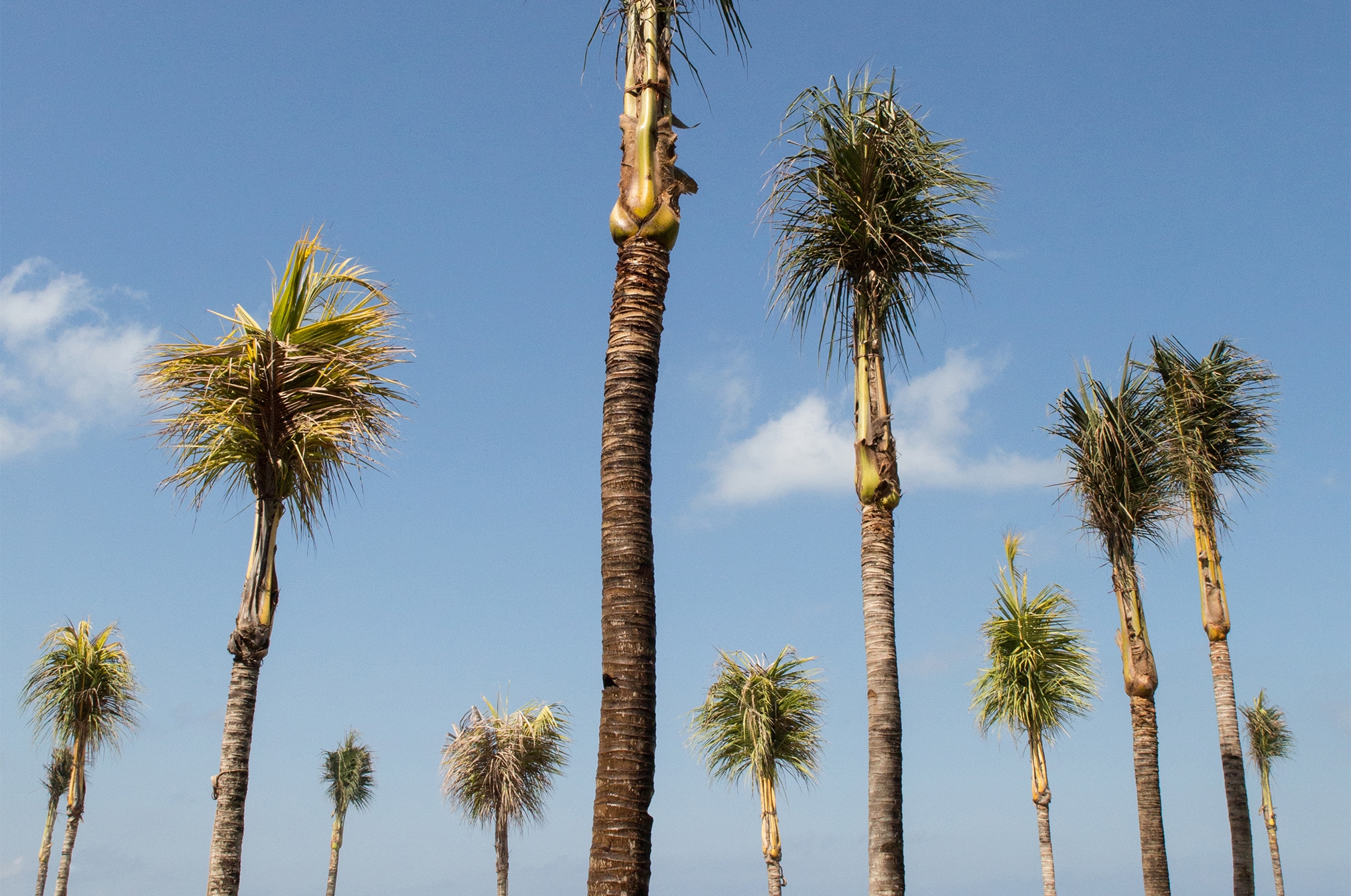
A literal pop-up DJ booth
Ignore everything you’ve come to know about the term pop up, which today suggests something fleeting. Instead, this rooftop DJ booth is permanent and more in line with the three-dimensional pop-up books of our childhood in that it will literally pop up out of a staircase connecting the third floor to the roof. The area will also resemble an amphitheater so that people can sit cascading around it, and in the centre is a square cut out that operates on hydraulics. When it opens up, there is a DJ booth inside. “This will be fun,” assures Dan. “Suddenly a DJ booth will just pop up out of the stairs, and someone like Peggy Gou could be inside. We’re going to do a lot of secret sunset sessions up there.”
An art house dedicated to the ongoing history of music
Visitors to Desa Potato Head will be able to take a trip through club culture as a permanent collection of more than 5,000 pieces of dance music memorabilia arrives in Bali. Collector Steve Terry has spent the better part of 25 years literally knocking on people's doors in Chicago, New York, and all around the world collecting ephemera and artefacts related to dance music culture. The first piece dates back to the hedonistic and hippy days of Ibiza in the 60s through to the early days of Paradise Garage and Studio 54 in New York and then to the UK for the birth of acid house…until now.
Rather than debuting the entire collection at once, it will be released in themes starting with Ibiza. "Because we're on an island and musically we celebrate sunset, and also because we have a slightly Balearic spirit in our day-to-day music policy (which obviously comes from Ibiza), we decided to launch with the Balearic edition," announces Dan. "It will be called 'From Ibiza to Bali' and show that journey."
Called the Wild Life Archive, the space will be the last to open as Desa Potato Head unfurls in the coming months but one of the most provocative for bona fide culture-seekers in the music sphere. Expect it to launch in May and change every six months.
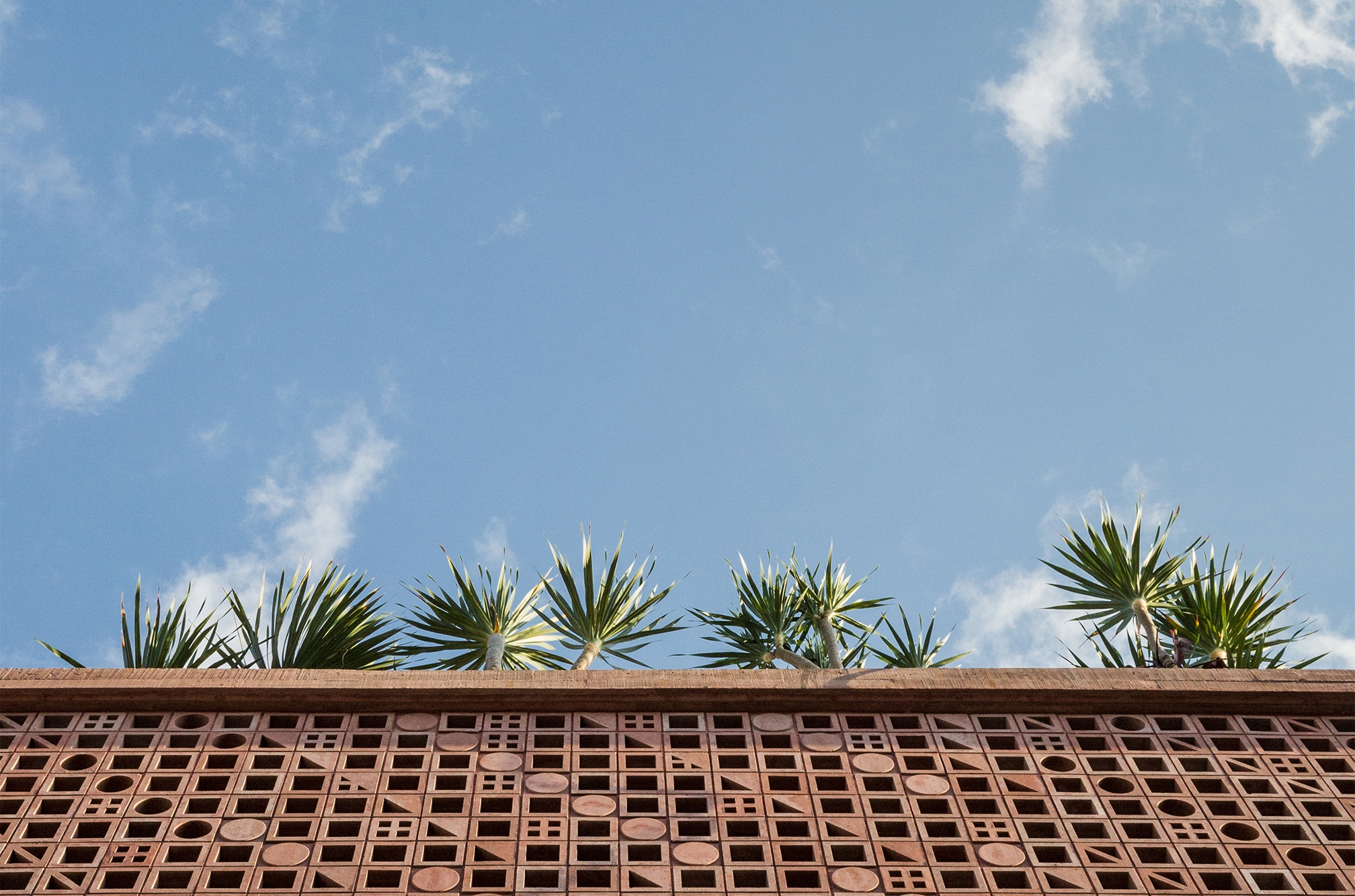
A deep-listening bar for audiophiles
Originally just a pop-up concept inspired by Tokyo's dimly-lit, nondescript listening spaces, Studio Eksotika began as an impromptu project that coupled obscure music with low-key drinks and often went on late into the night. But a profound love for the principles upon which the space represented saw it grow into a community, and now Studio Eksotika is getting a new and improved home inside the creative village. It will also serve as the pièce de résistance for music lovers visiting Desa Potato Head. The vibe? "To be honest, it's like my living room," answered Dea. "But with a bar"
A training ground for emerging artists
Akademi began as Katamama’s center of mixology, a hub for programs, schooling and experimentation for up-and-coming bartenders looking to be world-class by “championing the study and use of local and seasonal produce whilst promoting the root to flower concept.” Apply that to music, and you have the evolution of Akademi. It’s their way of getting the younger community involved on a deeper level and so they can almost become mentors for emerging artists. “We want to make sure that we’re bringing through the local scene and emerging artists, and not just bringing in global stars all the time. We’ll always put two local talents on the lineup with an international DJ,” said Dan. “Indonesia first!”
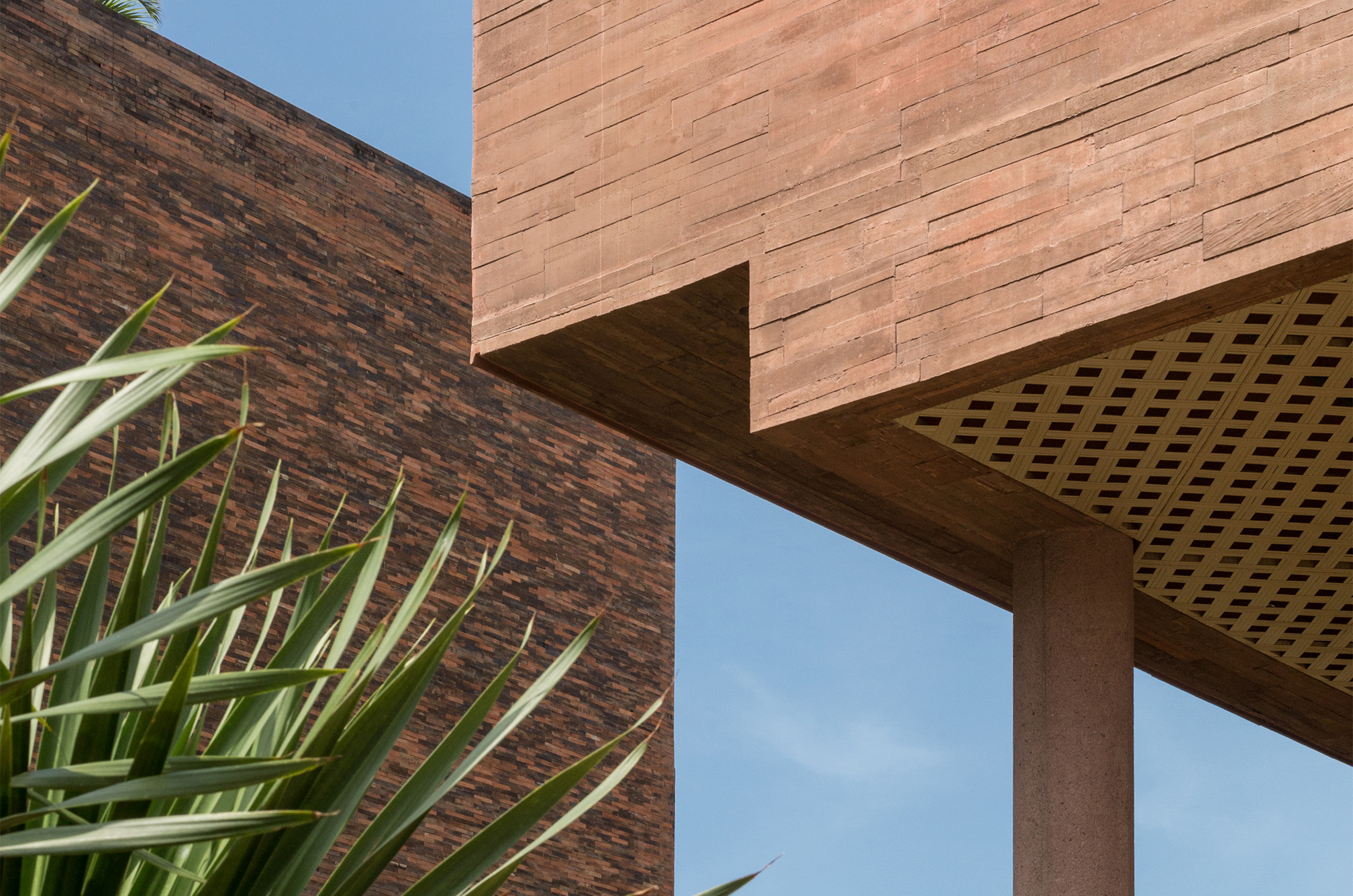
It’s not a hotel, but it has hotel rooms
When Katamama opened, it instantly upgraded Potato Head’s image from a beach club to a lifestyle destination worthy of a spread in Architectural Digest. The artisanal hotel’s striking design blends centuries-old Balinese traditions with remarkable contemporary craftsmanship, all while taking into consideration sustainability and supporting the local economy. But a stay there doesn’t come cheap. Desa Potato Head looks to offer this same experience but at a fraction of the cost with its 168 Potato Head Studio rooms. And rather than positioning itself as a hotel, it’s simply a Creative Center with branded studios that look to become the cultural heartbeat of the village. Studios will be available for short and long stay.
Desa Potato Head opens on December 21 with DJ Harvey, Richie Hawtin, and Honey Dijon to follow.


